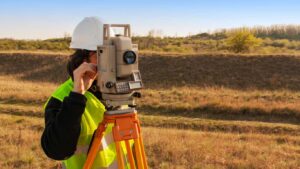Grasp the Critical Role of Detail Surveys in Tarneit for Effective Development Projects
Defining Detail Surveys: The Essential Insights They Provide for Your Development Endeavours
Detail surveys encompass a thorough and precise collection of measurements related to land, existing structures, and various environmental features. This extensive data compilation is vital for effective planning and development, offering invaluable insights that benefit multiple stakeholders, including developers, architects, and urban planners. Key elements of a detail survey include:
- Topographic mapping
- Boundary identification
- Identification of existing structures
- Utility locations
- Contour data
- Vegetation mapping
- Site dimensions
- Elevation data
Each of these components is essential, guaranteeing that the information collected is not only accurate but also highly applicable to specific projects within the Tarneit region, thereby enhancing the overall project outcomes.

Uncover the Key Advantages of Conducting Detail Surveys in Tarneit
In the swiftly developing suburb of Tarneit, detail surveys are crucial for enhancing the precision of development projects. By providing comprehensive information regarding the land and its current conditions, these surveys effectively mitigate risks associated with both the planning and construction phases. They empower developers and planners to create designs that seamlessly integrate with the unique characteristics of the local environment. The accuracy achieved through detail surveys significantly reduces the need for revisions and construction delays, ultimately optimizing resource use and bolstering the economic vitality of the region.
Strategies for Preparing Effectively for a Detail Survey to Guarantee Successful Outcomes
Preparing for a detail survey is fundamental to ensuring a smooth and efficient process. Start by collecting all relevant property documents, ensuring that the land is readily accessible, and coordinating with experienced surveyors well in advance to avoid any last-minute complications. Essential documents needed for a successful detail survey include:
- Title deeds
- Previous survey reports
- Planning permits
- Site plans
- Utility maps
- Environmental assessments
- Any existing development plans
- Access agreements
Having these documents organised and ready ahead of time streamlines communication with the surveyor, facilitating accurate and efficient outcomes for the survey, ensuring that all parties involved are aligned and informed.
Essential Considerations for Choosing a Detail Survey Provider in Tarneit
Selecting a trustworthy surveyor in Tarneit is vital for achieving high-quality results that adhere to local standards and regulations. When evaluating a detail survey provider, consider their experience in the industry, the technology they employ, and feedback from former clients. A surveyor with a proven track record in Tarneit will not only possess the required technical expertise but also valuable insights into local regulations and conditions, which can significantly impact your project. Collaborating with a reputable provider can save both time and money, leading to a more successful surveying experience that aligns with your project objectives.
Expert Perspectives on Detail Surveys in Tarneit: Comprehending Local Dynamics
Unique Characteristics That Make Tarneit a Prime Location for Detail Surveys
Tarneit’s rapid urban development and diverse land use create a distinctive environment for executing detail surveys. The area is experiencing significant growth, with numerous residential, commercial, and industrial projects currently in progress. This dynamic landscape necessitates specialised survey techniques that consider various factors, including zoning laws, environmental considerations, and infrastructure planning. For instance, a recent detail survey for a new residential project in Tarneit involved extensive topographic mapping to ensure compliance with local regulations while optimally utilising the available land for sustainable development.
The Methodology Professionals Use to Conduct Detail Surveys in Tarneit for Enhanced Accuracy
Surveying professionals employ cutting-edge technology and their local expertise to ensure the accuracy and compliance of detail surveys in Tarneit. The process typically begins with a thorough site assessment to identify key features and potential challenges. Surveyors then utilise advanced tools such as GPS and total stations to gather precise measurements. The steps involved in executing a detail survey can be summarised as follows:
- Initial site visit and assessment
- Preparation of a detailed survey plan
- Utilisation of appropriate technology for data collection
- Data analysis and thorough report preparation
- Client consultation to discuss findings
These steps ensure that the survey outcomes meet specific project requirements while adhering to Australian standards, thereby enhancing the reliability of the gathered data.
Innovations in Detail Surveys Revolutionising Industry Practices
The field of detail surveys is currently undergoing numerous innovations, with advancements such as drone surveys and 3D modelling transforming traditional methodologies. These state-of-the-art technologies enhance efficiency by enabling surveyors to collect extensive datasets swiftly and accurately. Drones, in particular, provide aerial perspectives that reveal information not easily visible from the ground. Expert analyses indicate that these trends not only improve the detail and speed of surveys but also reduce costs for developers and planners. As these technologies continue to advance, they are expected to further enhance the capabilities of detail surveys in Tarneit and beyond, leading to more effective project outcomes.
Common Challenges Encountered by Surveyors in Tarneit
Surveyors operating in Tarneit face various challenges, particularly due to the area’s rapid urban expansion and ongoing infrastructure developments. Issues such as restricted access to sites, shifting regulations, and the necessity for collaboration with multiple stakeholders can complicate the surveying process. Moreover, pre-existing structures and utility lines may present obstacles to accurately gathering data. To mitigate these challenges, experts recommend thorough planning and maintaining open communication with all involved parties. Leveraging advanced technologies and methodologies is crucial for effectively navigating the complexities of modern surveying tasks in Tarneit, ensuring that projects proceed smoothly.
Versatile Applications of Detail Surveys in Tarneit Across Various Industries
Primary Applications of Detail Surveys in Tarneit
Detail surveys play a fundamental role across numerous applications in Tarneit, especially in the realms of land development and infrastructure projects. Common applications of detail surveys encompass:
- Site analysis for new developments
- Infrastructure planning and management
- Property subdivision
- Environmental impact assessments
- Utility mapping for service connections
- Site remediation planning
- Land use planning and zoning compliance
- Urban renewal initiatives
These applications underscore the importance of detail surveys in enabling informed decision-making that promotes sustainable development and community growth, ensuring that projects align with local needs and regulations.
Contribution of Detail Surveys to Urban Planning Initiatives in Tarneit
Detail surveys provide critical data that underpins urban planning, assisting in the design of sustainable and efficient communities within Tarneit. By offering comprehensive insights into land use, existing infrastructure, and environmental conditions, these surveys empower planners to formulate well-informed strategies for future growth. For instance, detailed topographic data can identify suitable sites for parks, residential developments, or commercial centres, ensuring a balanced urban environment that meets community needs. Incorporating detail survey data into the urban planning process fosters the creation of functional and visually appealing spaces for residents, thereby enhancing the overall quality of life.
Application of Detail Surveys in Environmental Management Practices
Environmental management represents another essential area where detail surveys provide significant advantages. In Tarneit, these surveys assist in evaluating and managing environmental impacts during various development projects. By mapping existing vegetation, wetlands, and other natural features, surveyors deliver vital data that informs decision-making regarding conservation efforts and sustainable land use practices. They also help identify potential hazards such as flooding or soil erosion, enabling developers to implement effective management strategies. Consequently, detail surveys contribute to responsible development that prioritises environmental integrity while accommodating necessary growth, ensuring ecological sustainability.
Legal Framework for Detail Surveys in Tarneit: Ensuring Compliance
Legislation Regulating Detail Surveys in Tarneit: Understanding Its Importance
Detail surveys in Tarneit must adhere to a variety of legal frameworks, including the Surveying Act 2004 and local council regulations. These laws establish standards for surveying practices, ensuring accuracy, safety, and compliance with zoning and land use requirements. Abiding by these legal guidelines is crucial for surveyors, as it protects the interests of property owners and developers while promoting responsible land use. A comprehensive understanding of these regulations enables surveyors to navigate the complexities of the development process in Tarneit effectively, ensuring that all practices are legally sound.
Ensuring Compliance with Survey Regulations in Tarneit: Best Practices for Stakeholders
Ensuring compliance with survey regulations requires collaboration with certified surveyors and strict adherence to all applicable laws and standards in Tarneit. Property owners should engage surveyors with a solid reputation for compliance, as they possess the expertise and knowledge necessary to navigate the regulatory landscape efficiently. Ongoing training and updates regarding legislative changes are essential for surveyors to maintain compliance in their practices. By prioritising adherence to regulations, stakeholders can mitigate risks related to non-compliance, such as project delays and financial penalties, thereby ensuring successful outcomes.
Consequences of Non-Compliance with Survey Regulations in Tarneit: What You Need to Know
Violating survey regulations can result in severe consequences, including project delays, financial penalties, and potential legal actions in Tarneit. Non-compliance may lead to the invalidation of a survey, necessitating costly reworks or disputes with local authorities. In extreme cases, developers may face litigation from affected parties due to issues related to non-compliance. To avoid these potentially serious repercussions, it is vital for all stakeholders to understand their responsibilities and engage qualified professionals capable of ensuring adherence to relevant survey regulations, thus safeguarding their interests.
Technological Advancements Transforming Detail Surveys in Tarneit
Essential Technologies for Conducting Detail Surveys in Tarneit
Technologies such as GPS, total stations, and drones are fundamental for conducting precise detail surveys in Tarneit. GPS technology allows for accurate location data acquisition, while total stations combine electronic distance measurements with angle measurements to generate reliable coordinates. Drones have emerged as transformative tools, enabling surveyors to efficiently capture extensive areas while providing high-resolution imagery and data that were previously challenging to obtain. The integration of these technologies not only enhances the accuracy of detail surveys but also streamlines the overall efficiency of the surveying process, allowing for quicker project turnarounds.
Evolution of Surveying Tools: Improvements in Accuracy and Efficiency
The transition from manual to digital tools has significantly enhanced both precision and efficiency in detail surveys throughout Tarneit. Traditionally, surveyors relied on conventional instruments like theodolites and measuring tapes, which required considerable time and effort. The introduction of digital tools and software has revolutionised the industry, enabling advanced data analysis and visualisation. Modern surveyors can now utilise software to process data collected from various sources, resulting in more informative and accessible survey reports. This evolution exemplifies the ongoing drive for heightened accuracy and efficiency within the surveying profession, benefiting all stakeholders involved.
Selecting the Most Suitable Tools for Your Detail Survey in Tarneit
Choosing the right tools for a detail survey depends on the survey’s scope, terrain, and desired outcomes in Tarneit. Key considerations include the size of the area being surveyed, the complexity of the features involved, and the required level of accuracy. For instance, when surveying a large area with varied topography, drones may be the ideal choice for data collection. Conversely, for smaller sites with intricate details, a total station may provide the necessary precision. Understanding the specific needs of a project enables surveyors to select the tools that will yield optimal results, ensuring efficient and effective surveying practices.
Research-Backed Advantages of Detail Surveys in Tarneit for Enhanced Project Success
Enhancing Project Outcomes and Efficiency Through Detail Surveys
Detail surveys significantly improve project planning, minimise errors, and boost property values in Tarneit. For example, a housing development that employed a comprehensive detail survey reported a 20% reduction in construction delays compared to similar projects that did not conduct thorough surveys. Such improved outcomes highlight the vital role that detailed data plays in informed decision-making, enabling developers to optimise their plans and resources effectively. Consequently, the overall success of development projects is elevated, benefiting both developers and the wider community through enhanced infrastructure and facilities.
Economic Benefits Associated with Detail Surveys in Tarneit
Detail surveys greatly contribute to economic growth by facilitating efficient land use and development in Tarneit. By providing accurate data, these surveys help developers avoid costly mistakes, streamline project timelines, and ensure compliance with regulations. For instance, the successful alignment of commercial developments with local zoning laws, supported by detail surveys, can elevate property values and invigorate local economies. Furthermore, the efficiencies gained from accurate surveying can lead to reduced construction costs, ultimately benefiting both consumers and the broader community by fostering a robust economic environment.
Enhancing Safety in Construction Projects Through Detail Surveys
Detail surveys are essential in identifying potential hazards, thereby improving safety in development and construction practices within Tarneit. By mapping features such as drainage patterns, soil types, and existing utilities, surveyors can pinpoint risks that may affect construction activities. For example, understanding the terrain and potential water flow can help prevent flooding and associated damage during and after construction. This proactive strategy not only enhances on-site safety but also contributes to the durability and sustainability of developments, ultimately benefiting the surrounding community by creating safer living environments.
Promoting Sustainable Development Practices Through Detail Surveys in Tarneit
Detail surveys in Tarneit encourage sustainable land use and environmental conservation, contributing to long-term community planning and development. The data collected through these surveys informs strategies that balance growth with environmental considerations. For example, identifying and preserving green spaces during the planning phases can lead to healthier urban environments. Moreover, sustainable practices encouraged by meticulous detail surveys can minimise the ecological footprint of developments, fostering a culture of responsible growth that benefits both current and future residents through improved quality of life.
Future Perspectives: The Evolution of Detail Surveys in Tarneit and Beyond
Anticipated Innovations in Detail Surveys to Enhance Practices Further
Future innovations in detail surveys are likely to involve the integration of AI and real-time data processing capabilities. As technology advances, the ability to swiftly analyse and interpret survey data will enhance decision-making processes for developers and planners. AI can assist in predictive modelling, allowing surveyors to forecast project outcomes based on historical data. These advancements promise to increase the accuracy of surveys while streamlining workflows, making detail surveys even more essential for future developments in Tarneit, ensuring that they meet the evolving needs of the community.
Adapting Detail Surveys to Tarneit’s Ongoing Growth and Urbanisation
As Tarneit continues to expand, detail surveys will evolve to meet the growing demands of increased development and urbanisation. Adaptations may include incorporating more advanced technologies and methodologies to keep pace with the changing landscape. For instance, the integration of 3D visualisation tools could help stakeholders better understand complex projects, enhancing cooperation between developers, planners, and the community. This evolution will ensure that detail surveys remain relevant and effective in supporting responsible development practices in the future, ultimately contributing to the area’s sustainable growth.
The Role of Detail Surveys in Future Sustainable Development Initiatives in Tarneit
Detail surveys will be instrumental in planning for sustainable development, balancing growth with environmental considerations in Tarneit. As urban areas continue to expand, careful planning that accounts for ecological impacts will become increasingly vital. Detail surveys will provide the foundational data necessary to support initiatives focused on green building practices, efficient resource use, and the preservation of natural habitats. By facilitating a balance between development and conservation, detail surveys will be key in shaping a sustainable future for Tarneit, ensuring that progress does not come at the expense of the environment.
FAQs About Detail Surveys in Tarneit
What defines a detail survey, and why is it essential?
A detail survey is a comprehensive measurement of land, structures, and features that provides essential data for planning and development processes, ensuring accuracy and compliance.
What makes detail surveys critical for successful outcomes in Tarneit?
Detail surveys are vital in Tarneit as they enhance development accuracy, minimise associated risks, and facilitate informed decision-making in a rapidly growing area, leading to improved project results.
What preparations are necessary for a detail survey to guarantee efficiency?
Preparing for a detail survey involves gathering property documents, ensuring clear access to the land, and effectively coordinating with surveyors to avoid delays and misunderstandings.
How can I select a suitable detail survey provider in Tarneit?
Choosing a detail survey provider requires evaluating their experience, the technologies they employ, and client feedback to ensure quality and compliance with local standards for optimal results.
What are the common applications of detail surveys in Tarneit?
Common applications of detail surveys in Tarneit include land development, infrastructure planning, environmental assessments, property subdivisions, and urban renewal initiatives.
Which technologies are integral for accuracy in detail surveys?
Technologies such as GPS, total stations, and drones are critical for conducting accurate detail surveys in Tarneit, enhancing both precision and efficiency.
In what ways do detail surveys improve safety in construction practices?
Detail surveys aid in identifying potential hazards and informing safer development practices by mapping terrain, drainage patterns, and existing utilities, thus improving overall site safety.
What legal requirements regulate detail surveys in Tarneit to ensure compliance?
Detail surveys in Tarneit must comply with the Surveying Act 2004 and local council regulations to ensure accuracy and safety throughout the surveying process, protecting stakeholder interests.
What consequences arise from violating survey regulations in Tarneit?
Violating survey regulations can lead to project delays, financial penalties, and legal consequences, underscoring the importance of compliance for all stakeholders in the surveying process.
How do detail surveys promote sustainable development practices in Tarneit?
Detail surveys advocate for sustainable land use and conservation, aiding in responsible planning and development practices that benefit the community by balancing growth and environmental integrity.
Engage with Us on Facebook!
The Article: Detail Surveys in Tarneit: Precision Mapping Solutions first appeared on https://writebuff.com
The Article Precision Mapping Solutions for Detail Surveys in Tarneit Was Found On https://limitsofstrategy.com



